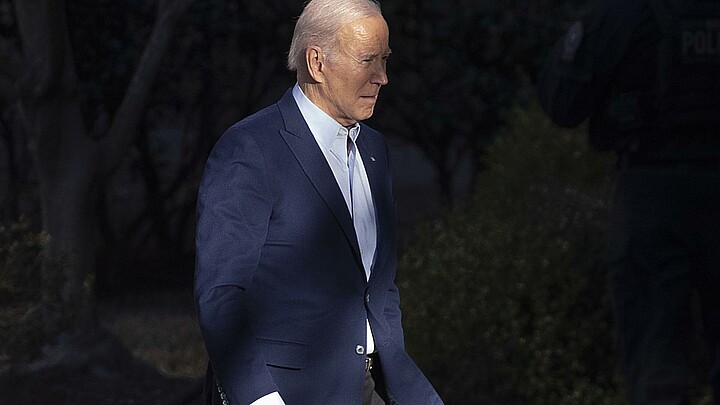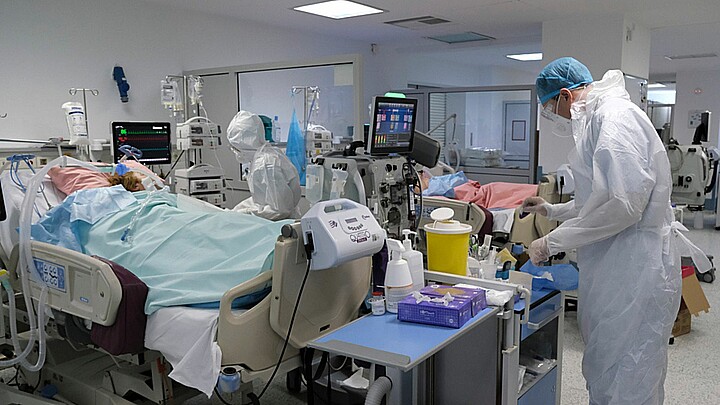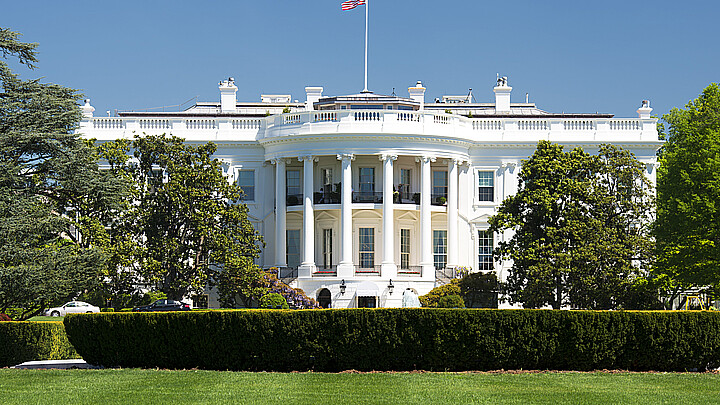Health
U.S. Attorneys investigate possible fraud linked to human organ harvesting groups in five states
The federal criminal probe is trying to determine whether any of the groups involved have been defrauding the U.S. government

February 27, 2024 8:38am
Updated: February 27, 2024 8:38am
U.S. Attorneys in five different states throughout the country have launched a major criminal investigation into non-profit organizations that collect human organs for transplants. The federal criminal probe is trying to determine whether any of the groups involved have been defrauding the U.S. government.
Staff from the Department of Health and Human Services and an inspector general from the Department of Veterans Affairs are also collaborating with the U.S. Attorneys. As part of their investigation, they are probing whether any of the groups have been overbilling the government for their costs.
The investigation has been underway for several months, people familiar with the case told The Washington Post. However, in recent weeks, the investigation has intensified, according to a notice that Steve Miller, executive director of the Association of Organ Procurement Organizations (OPO), sent to its members.
The manager explained that investigators from the VA inspector general were “sent” to the offices and homes of 10 executive directors of organ procurement organizations in early February “as part of an investigation.”
The Senate Finance Committee also probed possible conflicts of interest among the groups, by sending letters to executives at eightof the companies in Kansas, New Mexico, Ohio, Pennsylvania, Tennessee, and Wisconsin, asking if there were “instances in which they potentially abused their positions for monetary gain.”
The letters suggested that the executives and their organ procurement companies “have engaged in a complex web of financial relationships with tissue processors, researchers, testing laboratories, and logistics providers, which have the potential for creating conflicts of interest.”
The letters outright suggest that such conflicts of interest can cost lives.
“These alleged conflicting financial and business relationships,” the letters said, “pose serious risks to those in need of a lifesaving organ transplant.”
Some of the questions in the letters ask about “all personal financial interests or business relationships” the executives and their board members have had with organizations that do business with their organ procurement organization or any other such group.
Serious deficiencies in the U.S. national organ transplant system have come under increasing government scrutiny in recent years, but an investigation led by federal prosecutors, which carries the possibility of criminal charges, could be the biggest threat.
If the charges are proven, it would affect the status quo in the multibillion-dollar organ transplant industry.
The Association of Organ Procurement Organizations “is aware that the Department of Veterans Affairs Office of Inspector General has conducted investigations into some OPOs,” Jenny Daigle, a spokesperson for the trade association, commented in an email, the memo says.
None of the organ procurement organizations that were contacted about the VA's actions and the federal investigation responded. Spokespeople for the Justice Department and the VA inspector general's office also declined to comment on the issue.
In the nation there are 56 organizations that collect organs (mainly kidneys) from deceased donors in hospitals and organize their transportation so that they reach the surgeons at the 250 American medical centers that perform transplants.
Each purchasing group has a government-guaranteed monopoly over a swath of U.S. territory where it operates. But one of the main problems is that some centers have failed for years to collect enough organs to meet demand, according to government records.
The investigation focuses on the fact that these transplant centers pay some of the groups' costs and the Medicare system reimburses the organizations for the additional expenses they say they have incurred for the acquisition and transportation of kidneys, as well as other figures that they enter into. general expenses.
In this way, the groups collect reimbursements from transplant centers for other organs. Transplant centers are then reimbursed by both public and private payers, depending on the patient.
One of the objectives of the case seeks to detect whether any of the nonprofit organizations have violated the federal False Claims Act by knowingly billing the federal government for unacceptable costs, according to people familiar with the investigation cited by the newspaper.
Another line of investigation is aimed at finding out if there have been bribes between organizations of this “very united and poorly regulated union of American medicine,” The Post quotes, about the informants who spoke on condition of anonymity because they are not authorized to comment on a ongoing government investigation.
Despite decades of efforts to improve the system and an increasing number of transplants being performed, more than 103,000 people remain on the organ waiting list in the United States. Most patients need kidneys and some die every day without being able to receive a transplant of the affected organ.
While this latest investigation is strong, federal authorities have acted against organ procurement groups before. In 2012, two officials from the Alabama group were convicted of health care fraud and other charges for receiving kickbacks from a funeral home.









